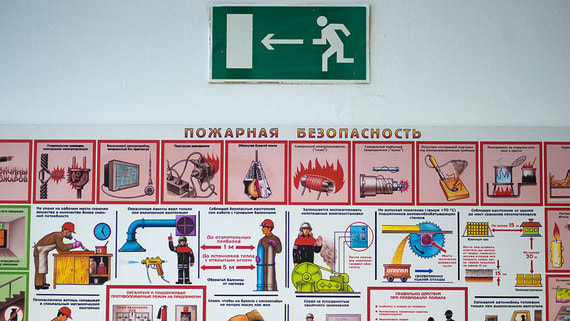The Cabinet of Ministers instructed to work out a mechanism for minimizing fines for budgetary institutions
[ad_1]

The Government of Russia instructed the Ministry of Justice and interested federal executive authorities to work out a mechanism that would allow control and supervisory authorities not to fine budgetary institutions and their managers for violations, the elimination of which is related to the powers of their founders – regional authorities and municipalities. A representative of the White House press service told Vedomosti about this. The instruction was given following the results of the government hour in the State Duma (State Duma) “On measures to improve control and supervisory activities” with the participation of Deputy Prime Minister Dmitry Grigorenko, which took place on July 12.
The Ministry of Economic Development, according to a representative of the government press service, has already prepared a number of proposals (see inset). The agency proposes to extend the current practice for state and municipal schools and kindergartens of replacing control and supervisory activities with preventive visits to other budgetary organizations. In particular, “on state and municipal institutions in the field of healthcare and social services for children,” a representative of the press service of the Cabinet of Ministers specified.
“In this case, in order to assess compliance with the requirements, control (supervisory) actions may be carried out and an order may be issued, including to the founder. At the same time, the institution is not fined if the violations are completely eliminated,” he explained.
The Ministry of Energy also proposes to introduce a mechanism for an agreement between the institution and the control and supervisory authorities, which “provides for the formation of an individual roadmap for eliminating violations, taking into account the funds available to the founder and the nature of the violations.” “If such an agreement is fulfilled, then the institution is also released from liability,” added the representative of the government press service.
Vedomosti sent inquiries to the Ministry of Justice and the Ministry of Economic Development.
Budgetary institutions and municipalities may be subject to justified complaints, but instead of prevention, fines are introduced, says Vyacheslav Timchenko, Chairman of the Federation Council (SF) Committee on Rules and Organization of Parliamentary Activities. “Our municipal budgets are in deficit; they are formed largely through subventions and subsidies. Therefore, it is absolutely wrong to fine socially oriented municipal institutions,” he told Vedomosti.
The Chairman of the Lower House of Parliament, Vyacheslav Volodin, in turn, during the July government hour in the State Duma, proposed developing a normative act according to which, when inspecting budgetary institutions, supervisory authorities would make decisions if funds were allocated to eliminate violations, but were spent inappropriately .
“What we do is this: money is not allocated by the district or city, but is asked from the educational institution or kindergarten – from the directors of these institutions. But the head of the district or city is still responsible for this, because he did not finance it. It would be right to give a clear signal here,” he said.
Grigorenko, in turn, noted on the right hour that in 2022 the number of inspections throughout the country decreased by almost 5 times compared to 2019, when the reform of control and supervision started. Last year, 339,000 inspections were carried out, two thirds of which were not related to business, he said. According to the Deputy Prime Minister, the main change within the framework of the reform of control and supervisory activities was the mandatory use of a risk-based approach to conducting inspections.
The problem of excessive activity of control and supervisory authorities in relation to municipalities was also discussed at the parliamentary hearings on the budget that took place on October 3 in the Federation Council. The Governor of the Stavropol Territory, Vladimir Vladimirov, then drew attention to the fact that in order to satisfy all the requirements set by the supervisory departments, an additional 27 billion rubles must be included in the region’s budget for 2024. Given that the revenue side of the regional budget for 2023 is 160.2 billion rubles, and the expenditure side is 190.1 billion rubles, it follows from the law on the budget of the Stavropol Territory.
Chairman of the Federation Council Valentina Matvienko noted that under the conditions of a moratorium on business inspections introduced in 2022, control and supervisory authorities “with double tenacity began inspections of municipal authorities, began to strangle them and again impose financial obligations, realizing that the time was not right, and there’s no money.” She suggested that the Cabinet of Ministers “consider very carefully [проблему] and keep it under control.”
According to Timchenko, the issue will be considered at one of the upcoming meetings of the Federation Council commission for monitoring the legislation of the Russian Federation in the field of state control (supervision) and municipal control. “We need to move away from inspections and come to preventive visits, telling one or another structure where not to make mistakes,” Timchenko explained.
The moratorium on routine inspections of enterprises was part of a set of measures proposed last year by the Cabinet of Ministers to ensure sustainable economic development and reduce the burden on business under sanctions. On December 29, 2022, Russian Prime Minister Mikhail Mishustin extended it until 2023.
[ad_2]
Source link








